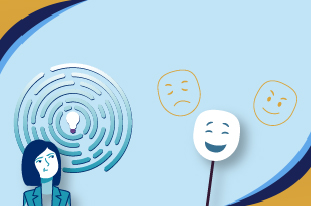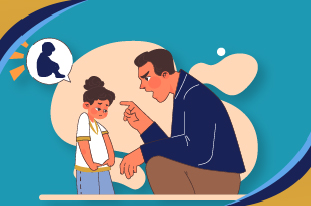Chest pain, burning sensations, shortness of breath, and sudden sweating may be the signs of heart disease, but they also indicate anxiety. Anxiety can also lead to panic attacks and indigestion. Panic attacks are very closely related to anxiety attacks and almost 23% of people in America experience panic attacks once in their lifetime. Chest pain is one of the main indications, and the chest pain can be cardiac or non-cardiac. But if you don’t have a heart issue and you feel anxiety most of the time, understanding your chest pain can help you find symptom relief. This article explores anxiety chest pain, its causes, diagnosis, and treatment.
What is Anxiety Chest Pain?
Anxiety and chest pain share a close bond. The chest pain is often sharp or results in a sudden “catch” that interrupts a breath and causes shortness of breath. The pain felt in the chest wall, caused by intense muscle strain, can sometimes last for hours or days after the panic attack.
Can anxiety make your chest hurt?
Yes, chest pain caused by anxiety is not only felt but it is a real pain. While it is true that anxiety can sometimes cause extreme somatic symptoms like sudden paralysis or blindness, symptoms like chest pain do have physiological origins. Chest pain does not move; it stays in its position.
Read More: Can Anxiety Disorder Cause High Blood Pressure? Insights About The Connection
What does chest pain from anxiety feel like?
If a person is inactive, chest pain due to anxiety or panic attacks does not wait for him to wake. It often feels like a sharp, stabbing sensation that starts suddenly. However, people who experience chest pain may be feeling stressed or anxious already before the pain starts. Common anxiety symptoms of chest pain for anxiety or panic attacks include dizziness, shortness of breath, faintness, trembling, changes in body temperature, feeling out of control of the situation, nervousness, numbness, and sweating in the feet and hands chest pain are included.
What Are The Reasons for Chest Pain Due to Anxiety?
To answer questions like “Why does anxiety cause chest pain?” or “Why does anxiety cause chest tightness”, we need to see the reasons that cause chest pain in anxiety. Let’s discuss the main causes:
Fight- Or Flight Response
Anxiety leads you to sweating or shortness of breath. When anxiety comes, your body’s stress level increases. This physiological change may cause your body to tighten up or grow tense. Increased stress level needs a stress response which can be psychological or emotional called the fight-or-flight response.

When you become stressed or anxious, your body prepares to fight back or run away. If you experience this fight-or-flight stress reaction infrequently, your body should fully recover within 30 minutes. But when time goes on, your body can’t recover as quickly. In a stressful moment, your heart rate may increase, and your heartbeats grow stronger which combined with tight chest muscles, can make you feel unusual pain.
Read More: Generalized anxiety vs panic disorder: A Closer Look
Other Factors
Everyone has heard that anxiety causes chest pain but there is no specific reason for anxiety disorders till today. There are considered to be some factors responsible for anxiety that causes chest pain. However, it is likely a combination of biological, genetic, and environmental factors.
Types of Anxiety Disorders That May Develop
There are different types of anxiety disorders that you can suffer from if you feel chest pain when stressed. These include
Panic Disorder: characterized by unexpected feelings of intense fear with physical symptoms that may include chest pain, heart palpitations, shortness of breath, or dizziness.
Post-Traumatic Stress Disorder: caused by an extremely stressful or terrifying event, symptoms may include severe anxiety, flashbacks, and uncontrollable thoughts about the event.
Obsessive-Compulsive Disorder: leads a person to thoughts and fears known as obsessions. These obsessions cause repetitive behaviors called compulsions. These obsessions and compulsions impact daily activities.
Read More: A Guide to Understand Anxious Attachment
Anxiety Chest Pain VS. Heart Attack Pain
Chest pain is a concerning symptom, and it is important to seek medical help if you experience it. If the chest pain is because of anxiety, then you should not risk your life by not going to the doctor to verify it. Chest pain that causes heart attack has these characteristics chest pain that worsens with exertion nausea as if someone has put something heavy on your chest, chest pain that moves to other parts of your body, such as down your arms or up to your jaw, rapid heart rate, shortness of breath, and squeezing sensation in the chest. There are two key differences between anxiety chest pain and heart attack chest pain.
Pain location
Chest pain from anxiety stays in your chest. Chest pain from a heart attack often flows throughout your chest and radiates to your jaw, shoulders, and arms.
Pain patterns
An anxiety attack causes sudden chest pain that slowly improves. But chest pain from a heart attack begins slowly and gradually gets worse
Pain Time
Many people find that anxiety-related chest pain ends in 10 minutes. However, other anxiety-related symptoms can last up to an hour after the pain improves. While chest pain from a heart attack lasts for two to three days.
Read More: Understanding Anxiety Tics: Signs, Causes, And Possible Treatments
Self-Care Activities for Chest Pain from Anxiety
If you experience anxiety in your chest, then you can try out these home solutions that will help you manage your anxiety and chest pain.
- Practice deep breathing
- Accept your feelings of anxiety and take action
- Practice mindfulness
- Picture a beautiful scene to divert your attention
- Eat healthier
When To Seek Medical Help
If your anxiety chest pain is severe or chronic, you need to go to a therapist or psychiatrist for diagnosis. The best medical center for all your mental health needs is Orange Coast Psychiatry. Whether you want solutions for your anxiety, chest pain or depression, our evidence-based solutions with telehealth approaches can help you manage your behavioral health. Get in touch with us now and take control of your mental health.
Read More: Can Anxiety Cause Dizziness? A Complete Understanding Of The Link
Conclusion
Recognizing anxiety as the cause of your chest pain is an important step in taking care of your health. But there can be other reasons for chest pain including heart attack. If you want to manage your chest pain you can try out different techniques to handle your anxiety chest pain. However, there is no exchange for medical help and Orange Coast Psychiatry is the best clinic for mental health services.


















